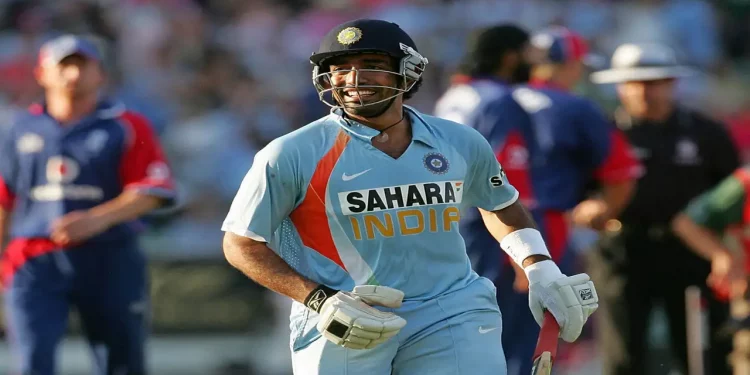It took some time for former Indian cricketer Robin Uthappa to come to terms with the fallout from India’s early 2007 ODI World Cup elimination.
During their incredibly poor Caribbean campaign, particularly the heartbreaking defeat to their rivals Bangladesh that eliminated them from the competition, Uthappa was a member of the Rahul Dravid-led team.
The Coorg native talked about how anti-player protests had degenerated into ugly ones and how some violet protesters had allegedly broken one of the glasses on one of Uthappa’s balconies at his Indian home. The former cricket player who is now a broadcaster also admitted to having concerns about his future in the sport.
“We had put glass over one of the balconies at my house. Air-gun pellets had left holes in that glass. I am referring to the year 2007. You consider a number of things, including how to cope with this and maintain your optimism in the wake of it. It’s not simple, it’s really … I did wonder at one time if I would ever play cricket again, much less represent India,” Uthappa said in a First Umpire interview.
The former cricket player for the Chennai Super Kings and Kolkata Knight Riders further said that during the first three weeks following the major event, he only left his home to attend church. According to Uthappa, he found it difficult to comprehend the circumstances at that moment.
“I was completely unsure when we got home about whether or not I would play for India again. I stayed at home for three weeks. I only ever left the house once, to attend church, and then I returned. Evidently disappointed and humiliated. When this happened to me, I was twenty-one or twenty-one years old. “A person does not know how to process this at that time, based on my exposure at that point,” he continued.
Bangladesh and Sri Lanka defeated India by five wickets and 69 runs, respectively, in their first and third Group B matches, sending them out before the Super Eight round. In relation to Uthappa’s tournament, he only managed to score 30 runs over the three games. But a few months later, he was instrumental in turning things around by helping India win the first-ever T20 World Cup.







